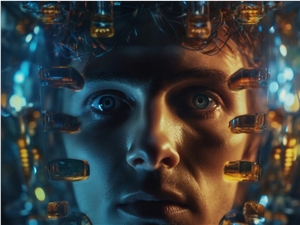Recently, an interesting phenomenon has emerged on social media: more and more users of Xiaohongshu are engaging in conversations with ChatGPT about the question "Can AI fall in love with humans?" and sharing screenshots of these discussions, which quickly sparks heated debates among netizens.
This seemingly simple question actually touches on the complex and nuanced relationship between humans and AI. Whether ChatGPT responds with romance or rationality, the interactions are highly dramatic and can instantly evoke strong emotional resonance. Through this method, users are not just conversing with AI; they are participating in a collective exploration of technology, emotions, and the boundaries between humans and machines.

Conversational AI like ChatGPT, with its precise understanding and response capabilities, can provide emotional feedback to some extent. This subtle interaction allows some users to find emotional solace in their exchanges with AI. They seem to seek comfort, understanding, and even an imagined emotional connection in the AI's replies.

This phenomenon reflects contemporary people's diverse imaginations regarding technology and emotions. In an era of rapid AI development, people are increasingly interested in the philosophical question of "Do machines have real emotions?" Through conversations with AI, users are not just passing time; they are exploring the increasingly blurred lines between humanity and technology.
For content creators, this is undoubtedly an attractive topic. By exploring innovative angles like AI lovers and AI conversations, they can generate more eye-catching social media content to satisfy users' curiosity about the intersection of technology and emotions.
It is noteworthy that this phenomenon reflects people's curiosity about technology, their yearning for emotional connections, and the subtle psychology of seeking understanding and connection in the digital age. It reminds us that in an era of highly developed technology, the human need for emotions and connections has never changed.









